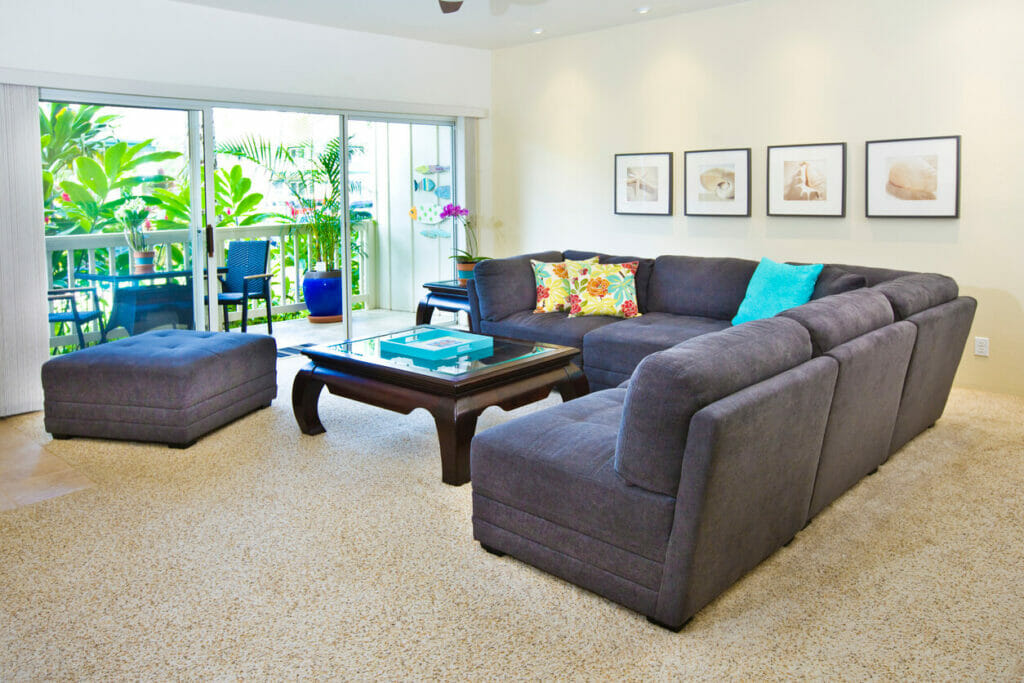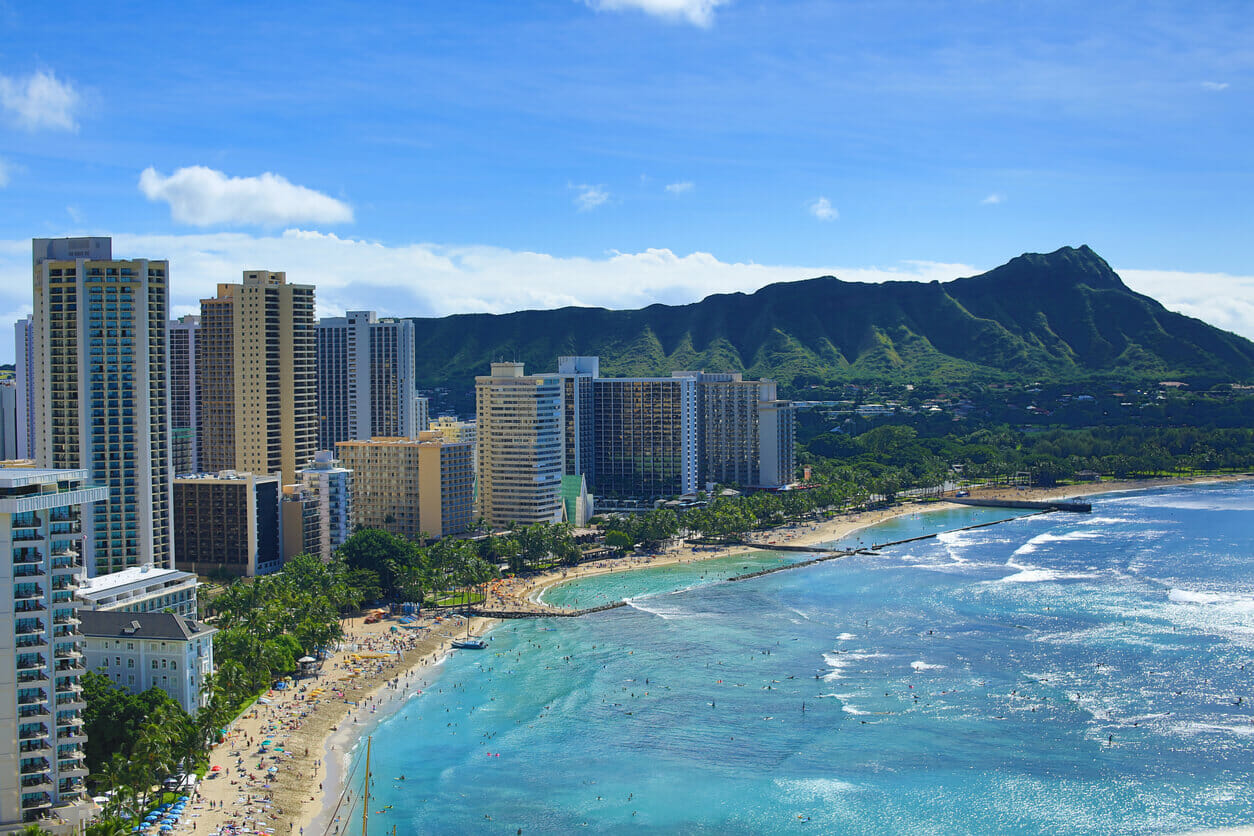Living in Hawaii is, in many ways, similar to living in any other state. Aside from the gorgeous white sand beaches and laidback atmosphere, people work, shop, socialize and even pay association fees.
There are three major types of community associations in the State of Hawaii—condominiums, planned communities (HOAs), and cooperatives. Each type of property has various rules, offerings and expectations.
This article will focus on condo communities, how they operate, and how they are regulated.
Table of contents
- The association of apartment owners
- Is there a difference between an AOAO and an AOUO?
- Governing statutes
- Mandatory registration
- AOAO fees
The association of apartment owners
In Hawaii, every condominium development is required to have an AOAO, or Association of Apartment Owners. The “association” refers to the unit owners’ association, which is organized under Hawaii Revised Statute (HRS) Chapter 514B. The “apartment” refers to the physical or spatial portion of the condo designated for separate ownership.
The condo owners are responsible for managing and maintaining the condo complex. The condo board takes a leadership role in an AOAO, but they may decide to hire a management company to help them with day-to-day operations.
If the building has 100 or more units, condo members must elect a board of at least 9 members unless the membership has amended the bylaws to reduce the number of directors. In cases where at least 70% of the unit owners do not reside in the building, the members may amend the bylaws to reduce the board to as few as 5 members. This change may be achieved through the written consent of a majority of owners, or the vote of a majority of a quorum at any annual meeting or special meeting called for that purpose. A decrease in the number of directors shall not deprive an incumbent director of any remaining term of office.
At least 3 members are needed for condo communities with fewer than 100 units.
All members are expected to follow the condo’s declarations, bylaws, and rules and regulations.
Members pay fees that are used for maintaining common elements, paying staff, insurance, and funding reserves. Some communities may also use the fees to cover electricity and wifi.
Is there a difference between an AOAO and an AOUO?
While it’s completely fine to use AOAO, Hawaii Statute now uses the term unit owner instead of apartment owner. So don’t be surprised to see AOUO (Association of Unit Owners) in updated documents.
There is no difference between an AOAO and AOUO.
Governing statutes
As mentioned earlier, regulations for condominiums fall under Hawaii Revised Statute (HRS) Chapter 514B, Condominiums. However, condo developments may be incorporated under Chapter 414D, Hawaii Nonprofit Corporation Act.
In addition to the statute, condos will have their own declarations, bylaws and rules. These documents inform all members of what is required of them, as well as their rights and privileges.

Master Associations, which are considered planned communities, can also have a sub-association. Condominiums can fall under such a structure. Owners in a sub-association pay maintenance fees to the condo association, but pay community dues to the master association. They are expected to follow both associations’ documents.
Here are a few rules from the HRS, but you can view the entire document by clicking here:
Association; organization and membership
The first meeting of the association shall be held no later than 180 days after recordation of the first unit conveyance; provided that 40% or more of the project has been sold and recorded. If 40% of the project is not sold and recorded at the end of one year after recordation of the first unit conveyance, an annual meeting shall be called if 10% of the unit owners so request.
Association; powers
Except as provided in section 514B-105, and subject to the provisions of the declaration and bylaws, the association, even if unincorporated, may:
(1) Adopt and amend the declaration, bylaws, and rules and regulations;
(2) Adopt and amend budgets for revenues, expenditures, and reserves and collect assessments for common expenses from unit owners, subject to section 514B-148;
(3) Hire and discharge managing agents and other independent contractors, agents, and employees;
(4) Institute, defend, or intervene in litigation or administrative proceedings in its own name on behalf of itself or two or more unit owners on matters affecting the condominium. For the purposes of actions under chapter 480, associations shall be deemed to be “consumers”;
(5) Make contracts and incur liabilities;
(6) Regulate the use, maintenance, repair, replacement, and modification of common elements; (7) Cause additional improvements to be made as a part of the common elements;
(8) Acquire, hold, encumber, and convey in its own name any right, title, or interest to real or personal property.
Association meetings
A meeting of the association shall be held at least once each year.
Special meetings of the association may be called by the president, a majority of the board, or by a petition to the secretary or managing agent signed by not less than 25% of the unit owners as shown in the association’s record of ownership; provided that if the secretary or managing agent fails to send out the notices for the special meeting within 14 days of receipt of the petition, the petitioners shall have the authority to set the time, date, and place for the special meeting and to send out the notices and proxies for the special meeting at the association’s expense in accordance with the requirements of the bylaws and of this part; provided further that a special meeting based upon a petition to the secretary or managing agent shall be set no later than 60 days from receipt of the petition.
Not less than 14 days in advance of any meeting, the secretary or other officer specified in the bylaws shall cause notice to be:
(1) Hand-delivered;
(2) Sent prepaid by United States mail to the mailing address of each unit or to any other mailing address designated in writing by the unit owner; or
(3) At the option of the unit owner, expressed in writing, by electronic mail to the electronic mailing address designated in writing by the unit owner.
The notice of any meeting must state the date, time, and place of the meeting and the items on the agenda, including the general nature and rationale of any proposed amendment to the declaration or bylaws, and any proposal to remove a member of the board; provided that this subsection shall not preclude any unit owner from proposing an amendment to the declaration or bylaws or to remove a member of the board at any annual association meeting.
All association meetings shall be conducted in accordance with the most recent edition of Robert’s Rules of Order Newly Revised. If so provided in the declaration or bylaws, meetings may be conducted by any means that allow participation by all unit owners in any deliberation or discussion.
All association meetings shall be held at the address of the condominium or elsewhere within the State as determined by the board; provided that in the event of a natural disaster, such as a hurricane, an association meeting may be held outside the State.
Mandatory registration
Pursuant to the statute, all condo communities with more than 5 units must register the property with the Real Estate Branch (REB) on a biennial basis. The responsibility for registering lies with boards and/or managers.
Among other reasons, this law was enacted to:
- Provide basic information to the Legislature and other interested parties about condominium associations and about the availability of educational programs for unit owners funded by the Condominium Education Fund, now known as the Condominium Education Trust Fund
- Enable the Commission to maintain current contact lists to disseminate information on important law changes
- Allow associations to maintain standing in court
There is a small registration fee that condos must pay, as well as a mid-year deadline that they must abide by.
AOAO fees
Owners pay fees as a part of their condo membership. Unfortunately, association fees are remarkably high in Hawaii.
The average fee in Hawaii statewide in 2021 was $762 a month, according to a national home warranty provider. In comparison, the U.S. average is about $286 per month.
The large inventory of aging high-rise buildings is partially to blame for these high fees. There is a constant need for significant repairs and maintenance, and the costs to complete these jobs are expensive.
Staff and insurance also keep fees much higher than the national average. Omnipresent hurricane and flood risks equate to high premiums, and there is only a small insurance market to share the risk.
Conclusion
In Hawaii, the AOAO, or AOUO, is the name used for a governing body that maintains a condominium. It shares many similarities with condo associations in other states.
Every community will have its own set of governing documents to inform members of expectations, obligations and rights.
Each member is required to pay a fee for being a member, but in return, they get to enjoy some great perks such as a semi-private gym or games room, common element maintenance which keeps the value of the property higher, and community events.


